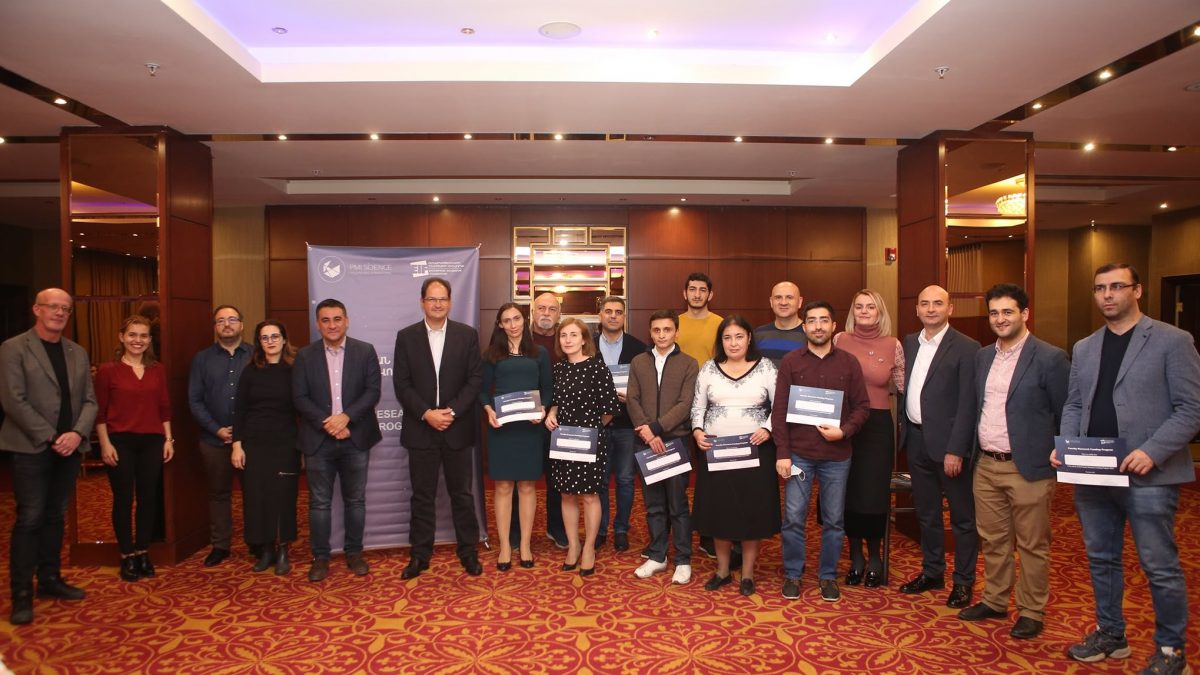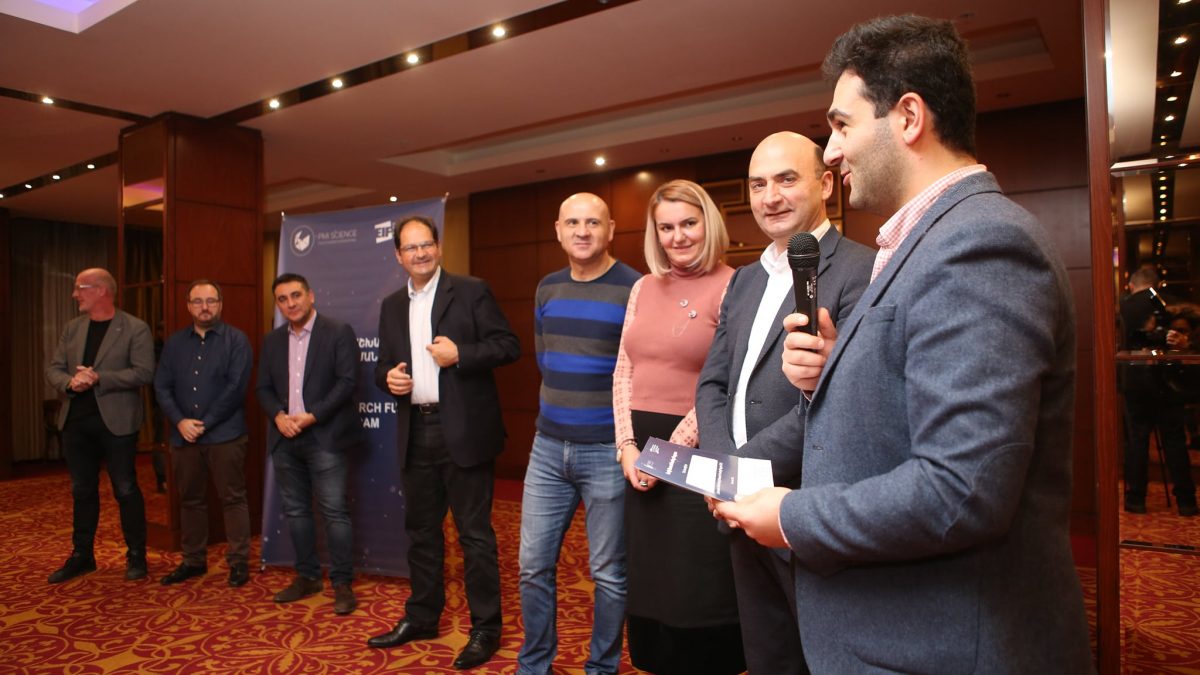10 research teams receive funding from EIF and PMI Science in the scope of Faculty Research Funding Program
At an award ceremony on November 11, Enterprise Incubator Foundation and PMI Science have awarded financial assistance to 10 research teams participating in the “Faculty Research Funding Program”.
Founding Director of EIF Bagrat Yengibaryan has underlined that the program not only provides financial support but also enables researchers to advance the scientific environment in Armenia. According to him, the success of the program, implemented jointly with PMI Science, guarantees the continuity of this cooperation.

In the framework of the “Faculty Research Funding Program”, research teams representing Armenia’s higher education institutions receive financing for projects in materials science, alternative energy sources, heat transfer technologies, neuroscience, applied and experimental physics, engineering, mathematics, data science, analytical chemistry.

- Psychophysiological Diagnostic And Treatment Approaches Based On The Emotional Arousal and Detection in The Virtual Reality Environment – Institute of Physiology NAS RA – Aleksandr Khachunts (team lead)
- Mining genetic variability landscape of human sensory perception systems in large genomic datasets: path to data-driven design and development of new sensory materials and compounds – Institute of Molecular Biology NAS RA – Arsen Arakelyan (team lead)
- Green Synthesis and Biocompatibility Assessment of Magnetic Nanoparticles – Russian-Armenian University – Ashkhen Hovhannisyan (team lead)
- Colloidal Quantum Dots as Platforms for Quantum Information Science – Russian-Armenian University – Davit Hayrapetyan (team lead)
- Comprehensive application of computational approaches for understanding highly dysregulated molecular processes related to complex diseases – Institute of Molecular Biology NAS RA Garri Chilingaryan (team lead)
- Development and investigation of new generation optical elements for use in LiDARs and terahertz technique – Yerevan State University – Hakob Margaryan (team lead)
- Computational Search for Novel Solid-State Electrolytes – Hayk Zakaryan – Yerevan State University (team lead)
- Investigation of the graphite composites by their nearest microwave electromagnetic fields visualization as units for high-frequency communication systems – Yerevan State University, Henrik Parsamyan (team lead)
- Bio-based and biodegradable plastics from renewable sources – Yerevan State University- Hovik Panosyan (team lead)
- High-Entropy (FeCoNiMnCu)O Oxide by Solution Combustion Synthesis and Spark Plasma Sintering for Magnetic Applications – Institute of Chemical Physics NAS RA – Sofiya Aydinyan (team lead)
***
In this blog, we are presenting insights from the members of two winning teams: Henrik Parsamyan and Garri Chilingaryan.
Henrik’s team is working on the “Investigation of the graphite composites by their nearest microwave electromagnetic fields visualization as units for high-frequency communication systems” project. According to him, it combines material science and experimental physics and aims to develop graphite/carbon-based composite materials, as well as investigate and visualize surface electromagnetic (Zenneck) waves of graphite cylindrical waveguides.
“With this funding, we can buy new equipment and tools for our microwave photonics lab,” Henrik told us. “It will also help us study new TEOIM indicators for visualizations of electric and magnetic fields.”
As an early-career researcher, Henrik believes that scientists should not be afraid of exploring new areas. “I think we also should popularize science,” he added.
The project of Garri Chilingaryan’s team is called “Comprehensive application of computational approaches for understanding highly dysregulated molecular processes related to complex diseases”. The researchers focus on developing a comprehensive computational drug discovery workflow. The other part of their work is studying its application for investigation and discovery of potential (and previously unexplored) molecular pathways that have crucial functions in cancer development.
“We use AI, data science, and bioinformatics approaches, including our own original methods, to address the most critical issues associated with molecular mechanisms underlying the development of cancer,” added Garri.
According to him, the team will use the received funding to complete the project and deepen collaboration with foreign laboratories.
“For us, this program was an opportunity to execute a bold scientific idea,” said Garri. “I encourage fellow scientists to apply and finally implement all those ideas they have entertained for years but could not pursue for the lack of funds.”
The “Faculty Research Funding Program” is an effective tool for creating research opportunities for the Armenian scientists who are employed in the education system. Working in teams that include students as well, the researchers are able to continue their scientific pursuits and engage the next generation of the science community in complex projects.



